Acne, a prevailing dermatological concern afflicting millions globally, entails more than skin deep distress and exasperation. Its presence can evoke profound frustration, eroding one’s self-esteem and confidence. Nevertheless, armed with a judicious approach and appropriate therapeutic agents, banishing acne and attaining a blemish-free complexion becomes an achievable reality. We delve into an assortment of invaluable tips and avant-garde products, ensuring your journey to effectively combat acne is paved with success.
Why acne is a common skin concern
Acne, an omnipresent dermatological quandary, manifests when sebaceous follicles endure obstruction, impeded by a concoction of sebum and expired epidermal cells. This excessive sebum production, interlaced with pernicious bacterial proliferation, precipitates a state of inflammation, resulting in the formation of unsightly blemishes such as pustules, comedones, papules, and, in severe cases, cystic nodules. While the facial region serves as the most frequent battleground for acne, it relentlessly extends its reach to the neck, chest, back, and shoulders.
The impact of acne on self-esteem and confidence
The indelible footprint of acne transcends its physical manifestations, cascading into the realm of emotional well-being and self-assurance. The conspicuousness of acne impels individuals to experience an acute sense of self-consciousness and mortification. Their interpersonal connections and overall quality of life invariably bear the brunt of this vexing skin affliction. Consequently, the pursuit of efficacious acne remedies assumes paramount significance, as it not only imparts sound physical health but also fosters emotional equilibrium.
Understanding Acne
Different types of acne
Acne can manifest in various forms, each requiring specific treatment approaches. The most common types include:
- Comedones: Non-inflammatory acne characterized by blackheads and whiteheads.
- Papules: Small, raised red bumps caused by inflammation.
- Pustules: Similar to papules, but with a white or yellow pus-filled center.
- Nodules: Large, painful, solid bumps deep within the skin.
- Cysts: Severe acne lesions that are deep, pus-filled, and prone to scarring.
Causes of acne
Several factors contribute to the development of acne, including:
- Excess sebum production: Overactive oil glands can lead to clogged pores.
- Dead skin cells: Accumulation of dead skin cells can block hair follicles.
- Bacterial growth: The presence of bacteria (Propionibacterium acnes) on the skin can worsen acne.
- Hormonal changes: Hormonal fluctuations during puberty, menstruation, or hormonal disorders can trigger acne.
- Genetics: A family history of acne increases the likelihood of developing the condition.
Factors that worsen acne
In addition to the underlying causes, certain factors can exacerbate acne:
- Poor skincare routine: Inadequate cleansing and improper product use can contribute to acne.
- Dietary choices: Consuming a high-glycemic diet or excessive dairy and sugar may worsen acne for some individuals.
- Stress: Increased stress levels can trigger hormonal imbalances, leading to acne flare-ups.
- Environmental factors: Exposure to pollutants and humidity can affect the skin’s health.
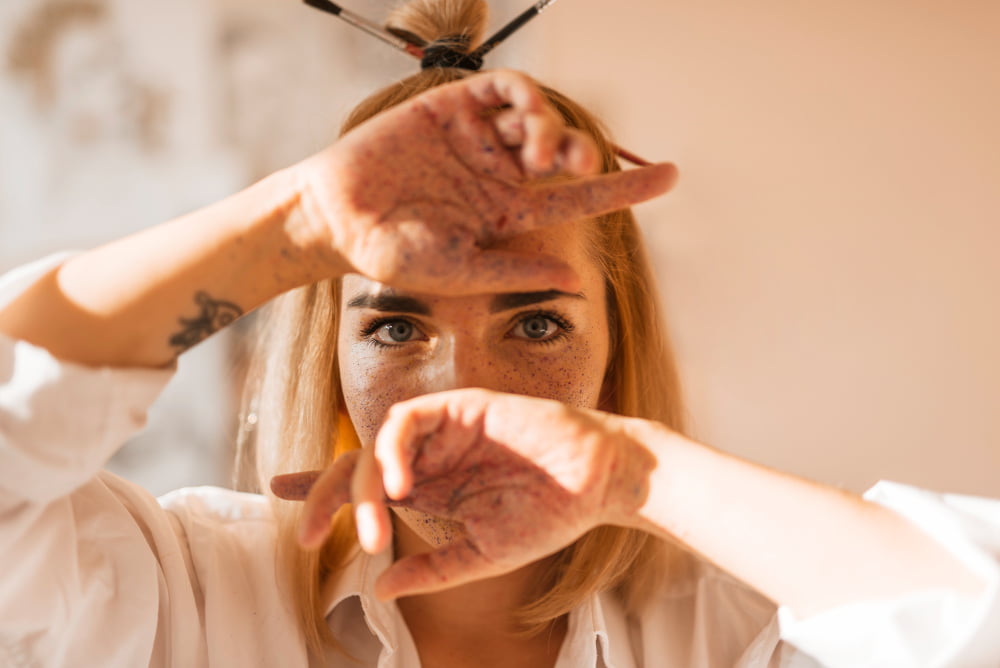
Tips for Preventing Acne
Establishing a consistent skincare routine
Maintaining a regular skincare routine is crucial for preventing acne breakouts. Follow these steps:
- Gentle cleansing: Use a mild cleanser twice a day to remove dirt, oil, and impurities from your skin.
- Exfoliation: Regular exfoliation helps unclog pores and remove dead skin cells. Choose a gentle exfoliant suitable for your skin type.
- Moisturizing: Use a lightweight, non-comedogenic moisturizer to keep your skin hydrated without clogging pores.
- Sun protection: Apply a broad-spectrum sunscreen with an SPF of 30 or higher to protect your skin from harmful UV rays.
Choosing the right products for your skin type
Using products specifically formulated for your skin type can make a significant difference in preventing acne. Consider the following:
- Cleansers: Look for cleansers that are non-comedogenic and suitable for your skin type.
- Toner: Incorporate a toner with acne-fighting ingredients like salicylic acid or witch hazel into your routine.
- Acne treatments: Select over-the-counter products containing benzoyl peroxide, salicylic acid, or sulfur to target acne-causing bacteria and reduce inflammation.
- Moisturizers: Opt for lightweight, oil-free moisturizers that won’t clog pores.
- Makeup: Choose non-comedogenic and oil-free makeup products to avoid aggravating acne.
Maintaining a healthy diet and lifestyle
While diet alone doesn’t directly cause acne, certain dietary choices can impact your skin’s health. Consider the following tips:
- Balanced diet: Consume a diet rich in fruits, vegetables, whole grains, and lean proteins for overall skin health.
- Hydration: Drink an adequate amount of water to keep your skin hydrated and help flush out toxins.
- Limit processed foods: Reduce your intake of sugary, high-glycemic foods and beverages that can trigger acne breakouts.
- Omega-3 fatty acids: Incorporate foods like fatty fish, chia seeds, and walnuts into your diet, as they can help reduce inflammation.
- Avoid dairy: Some individuals find that reducing dairy consumption can improve their acne symptoms.
Avoiding common acne triggers
Certain habits and environmental factors can contribute to acne breakouts. Try the following:
- Avoid touching your face: Touching your face can transfer bacteria and oils, leading to clogged pores and breakouts.
- Cleanse after sweating: After exercising or sweating, cleanse your skin to remove excess oiland sweat that can clog pores.
- Avoid excessive sun exposure: While limited sun exposure can have benefits for acne, excessive sun exposure can lead to inflammation and skin damage. Use sunscreen and seek shade when necessary.
- Avoid harsh skincare products: Harsh cleansers, scrubs, and abrasive treatments can irritate the skin and worsen acne. Choose gentle products instead.
- Manage stress: Stress can trigger hormonal changes that contribute to acne breakouts. Practice stress management techniques such as exercise, meditation, and relaxation exercises.
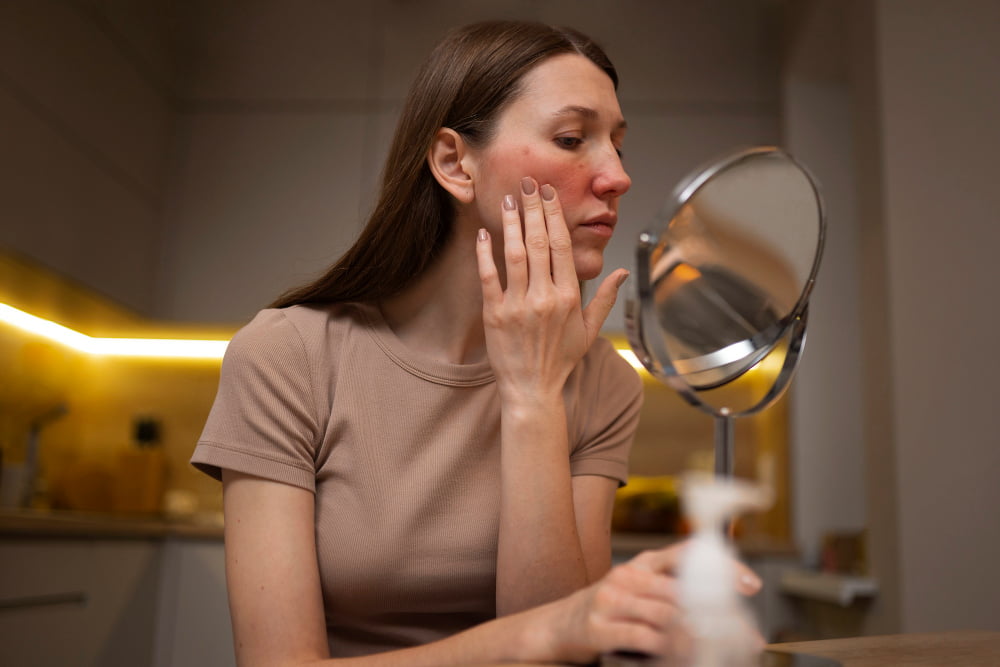
Treating Acne at Home
Cleansing and exfoliating techniques
Proper cleansing and exfoliating can help remove impurities and dead skin cells. Follow these techniques:
- Gentle cleansing: Use lukewarm water and a gentle cleanser to wash your face twice daily. Avoid scrubbing vigorously, as it can irritate the skin.
- Exfoliation: Choose a gentle exfoliant and use it 1-2 times per week to remove dead skin cells and unclog pores. Be cautious not to over-exfoliate, as it can cause dryness and irritation.
Over-the-counter acne treatments
Over-the-counter acne treatments can be effective for mild to moderate acne. Consider the following options:
- Benzoyl peroxide: This ingredient kills acne-causing bacteria and helps unclog pores. Start with a lower concentration and gradually increase if tolerated.
- Salicylic acid: Salicylic acid exfoliates the skin and helps unclog pores. It is commonly found in cleansers, toners, and spot treatments.
- Sulfur: Sulfur reduces inflammation and helps to remove dead skin cells. It is often found in spot treatments and masks.
Natural remedies for acne
If you prefer a more natural approach, several remedies can help improve acne symptoms:
- Tea tree oil: Tea tree oil has antimicrobial properties that can combat acne-causing bacteria. Dilute it with a carrier oil and apply it as a spot treatment.
- Aloe vera: Aloe vera has soothing and anti-inflammatory properties. Apply pure aloe vera gel to affected areas to reduce redness and inflammation.
- Green tea: Green tea contains antioxidants that can help reduce inflammation. Brew green tea and apply it to your skin or use products containing green tea extract.
Medical Treatments for Acne
Topical medications
If over-the-counter treatments don’t provide sufficient results, dermatologists may prescribe topical medications:
- Retinoids: Retinoids, such as tretinoin or adapalene, help unclog pores, reduce inflammation, and promote skin cell turnover.
- Topical antibiotics: Antibiotics like clindamycin or erythromycin can help reduce acne-causing bacteria and inflammation.
- Combination therapies: Some medications combine retinoids, antibiotics, or benzoyl peroxide to target multiple factors contributing to acne.
Oral medications
For more severe or persistent acne, dermatologists may recommend oral medications:
- Oral antibiotics: Antibiotics like doxycycline or minocycline are prescribed to reduce inflammation and kill bacteria.
- Hormonal treatments: Oral contraceptives or anti-androgen medications can help regulate hormonal imbalances that contribute to acne.
- Isotretinoin: Isotretinoin is a potent oral medication used for severe acne. It reduces oil production, prevents clogged pores, and has long-lasting effects.
Dermatological procedures
In certain cases, dermatologists may recommend procedures to treat acne:
- Chemical peels: Chemical peels involve applying a solution to the skin, exfoliating dead cells and unclogging pores.
- Microdermabrasion: Microdermabrasion uses a device to gently exfoliate the skin, revealing fresher and smoother skin.
- Laser or light therapy: These treatments target bacteria, reduce oil production, and promote collagen production to improve acne symptoms.
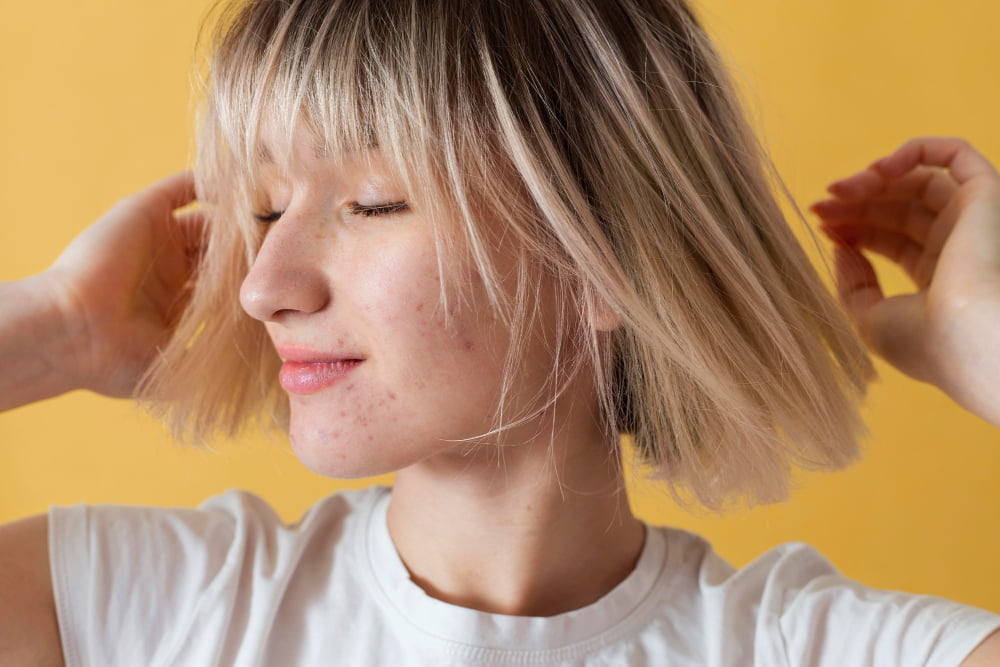
Best Acne Products
Cleansers and toners
- Neutrogena Oil-Free Acne Wash: This cleanser contains salicylic acid to unclog pores and prevent breakouts.
- CeraVe Foaming Facial Cleanser: It gently removes excess oil and dirt while maintaining the skin’s natural moisture barrier.
- Thayers Witch Hazel Toner: Witch hazel helps balance the skin’s pH and reduce inflammation, promoting clearer skin.
Spot treatments and serums
- Mario Badescu Drying Lotion: This spot treatment contains salicylic acid, calamine, and sulfur to dry out and shrink pimples overnight.
- The Ordinary Niacinamide Serum: Niacinamide reduces excess oil production, minimizes pore appearance, and improves overall skin texture.
- Paula’s Choice 2% BHA Liquid Exfoliant: This exfoliating serum contains salicylic acid to unclog pores and improve skin tone.
Moisturizers and sunscreens
- Cetaphil Daily Facial Moisturizer: It provides lightweight hydration without clogging pores and offers broad-spectrum SPF protection.
- La Roche-Posay Anthelios Clear Skin Sunscreen: This oil-free sunscreen is specifically formulated for acne-prone skin, offering sun protection without causing breakouts.
- EltaMD PM Therapy Facial Moisturizer: It nourishes and hydrates the skin while promoting cell turnover and reducing the appearance of acne scars.
Lifestyle Changes for Clear Skin
Managing stress levels
High-stress levels can trigger hormonal imbalances that contribute to acne. Incorporate stress-management techniques into your routine:
- Exercise: Engaging in regular physical activity helps reduce stress and promotes overall well-being.
- Meditation: Practicing mindfulness meditation can help calm the mind and reduce stress levels.
- Deep breathing: Taking slow, deep breaths can activate the body’s relaxation response and lower stress levels.
Getting enough sleep
Adequate sleep is crucial for healthy skin. Follow these tips for better sleep:
- Establish a bedtime routine: Develop a routine that includes winding down before bed, such as reading a book or taking a warm bath.
- Create a sleep-friendly environment: Ensure your bedroom is dark, quiet, and at a comfortable temperature.
- Limit screen time before bed: Blue light emitted by screens can disrupt sleep patterns. Avoid using electronic devices close to bedtime.
Avoiding excessive sun exposure
While sunlight can have some positive effects on acne, excessive exposure can lead to inflammation and skin damage. Protect your skin by:
- Using sunscreen: Apply a broad-spectrum sunscreen with an SPF of 30 or higher every day, even during cloudy or winter days.
- Seeking shade: When the sun is at its strongest, seek shade or use protective clothing like hats and sunglasses.
Regular exercise and hydration
Engaging in regular exercise and staying hydrated contribute to overall skin health:
- Exercise: Physical activity increases blood flow and helps flush out toxins, promoting healthier skin.
- Hydration: Drink enough water throughout the day to keep your skin hydrated and maintain its natural balance.
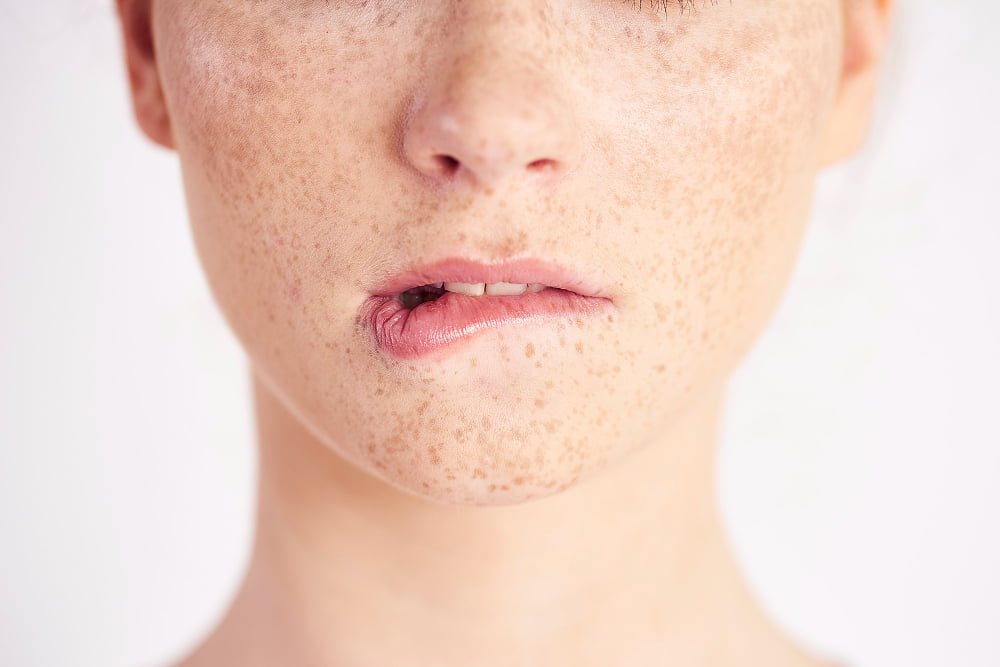
Tips for Dealing with Acne Scars
At-homeremedies for acne scars
While complete scar removal is challenging at home, these remedies can help improve the appearance of acne scars:
- Vitamin C serums: Vitamin C helps brighten the skin and promote collagen production, reducing the appearance of scars.
- Rosehip oil: This natural oil is rich in essential fatty acids and antioxidants, which can help improve the texture and tone of the skin.
- Aloe vera gel: Applying pure aloe vera gel to acne scars can soothe inflammation and support skin regeneration.
- Microneedling: Using a derma roller with tiny needles can stimulate collagen production and improve the appearance of acne scars.
Professional treatments for acne scars
Consulting a dermatologist for professional treatments can provide more significant results:
- Chemical peels: Chemical peels remove the top layers of the skin, revealing smoother and more even-toned skin.
- Microneedling with PRP: Microneedling combined with platelet-rich plasma (PRP) stimulates collagen production and accelerates skin healing.
- Laser resurfacing: Laser treatments can target acne scars by stimulating collagen production and promoting skin rejuvenation.
Maintaining Clear Skin
Long-term skincare routine
To maintain clear skin and prevent future breakouts, follow a consistent skincare routine:
- Cleansing: Cleanse your face twice daily to remove dirt, oil, and impurities.
- Exfoliation: Exfoliate 1-2 times per week to remove dead skin cells and unclog pores.
- Treatment: Use acne-fighting treatments or medications as prescribed or directed.
- Moisturization: Apply a lightweight, non-comedogenic moisturizer daily to keep the skin hydrated.
- Sun protection: Wear sunscreen with an SPF of 30 or higher every day to protect against harmful UV rays.
Regular dermatologist visits
Regular visits to a dermatologist are important for acne management and overall skin health:
- Professional guidance: Dermatologists can assess your skin, recommend suitable treatments, and adjust your skincare routine accordingly.
- Prescription medications: If over-the-counter treatments are not effective, dermatologists can prescribe stronger medications tailored to your specific needs.
Lifestyle habits for preventing acne
Maintaining a healthy lifestyle can contribute to acne prevention:
- Clean bedding: Change your pillowcases and sheets regularly to prevent the buildup of oils, bacteria, and dirt.
- Avoid picking or popping pimples: Picking or popping pimples can lead to scarring and prolong the healing process.
- Avoid excessive makeup: Heavy or pore-clogging makeup can worsen acne. Opt for lightweight and non-comedogenic products.
- Hair care: Keep your hair clean and away from your face, as oils and products can contribute to acne breakouts.
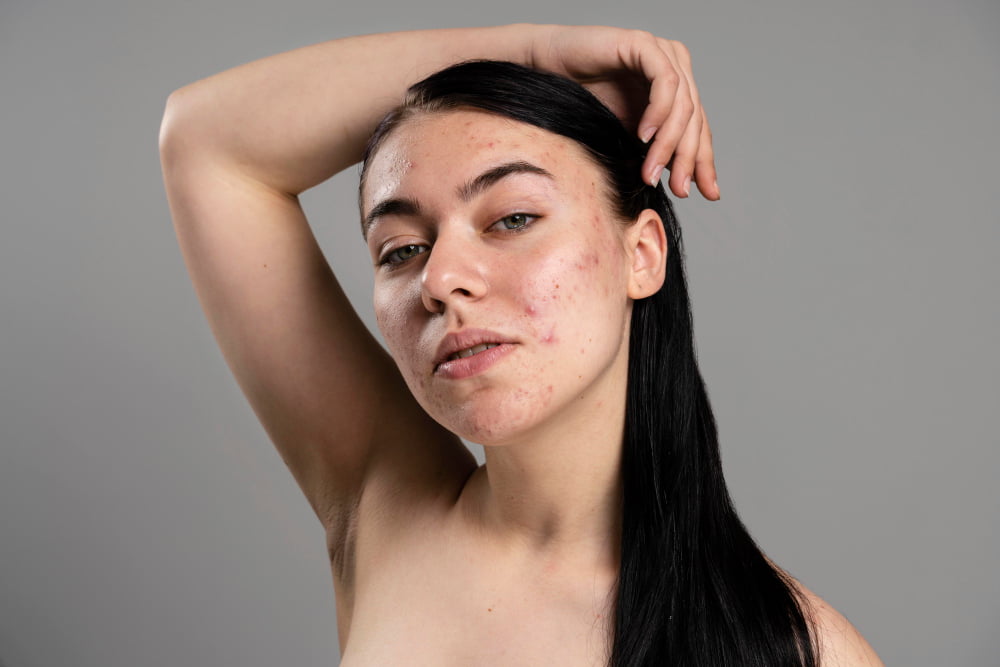
Treating acne requires a comprehensive approach that includes proper skincare, lifestyle adjustments, and, in some cases, professional treatments. By understanding the different types of acne, addressing the underlying causes, and adopting a consistent skincare routine, you can effectively manage and treat acne. Remember that everyone’s skin is unique, so it may take time to find the most suitable products and treatments for your individual needs. Don’t hesitate to seek guidance from a dermatologist for personalized advice and support on your acne treatment journey.
FAQs
- Can certain foods cause acne?
- While the relationship between diet and acne is not fully understood, some individuals may find that certain foods, such as high-glycemic foods or dairy products, can worsen their acne symptoms. It’s best to observe how your skin reacts to different foods and make adjustments accordingly.
- Is it necessary to consult a dermatologist for acne treatment?
- Consulting a dermatologist can be beneficial, especially if over-the-counter treatments are not providing satisfactory results. A dermatologist can provide a personalized treatment plan, prescribe medications, and perform procedures to effectively treat acne.
- How long does it take to see results from acne treatments?
- The timeline for seeing results from acne treatments varies depending on the severity of acne and the chosen treatment. It may take several weeks or even months to notice significant improvements. Consistency and patience are key.
- Are natural remedies effective in treating acne?
- Natural remedies can have some benefits in managing acne symptoms, but their effectiveness varies from person to person. It’s important to remember that natural remedies may not provide the same level of efficacy as medical treatments. Consulting a dermatologist is advisable for severe or persistent acne.
- What should I do if my acne worsens despite following a skincare routine?
- If your acne worsens despite following a skincare routine, it may be time to consult a dermatologist. They can evaluate your condition, identify any underlying factors, and recommend appropriate treatments to help control your acne.






